Posts About Cats
Your cats have visited us for their annual or semi-annual health examinations. Your cats have been deemed healthy. They have perfect (or near perfect) litter box use. Here are some tips to help keep your cats using their litter boxes consistently!
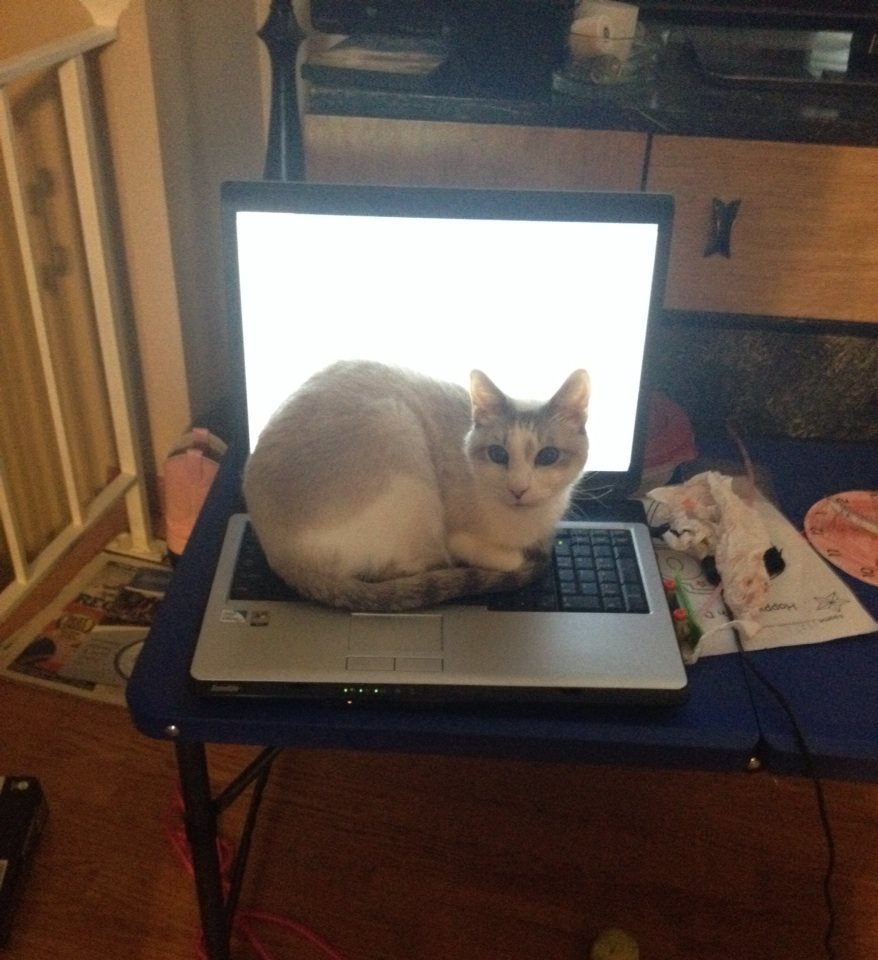
- Count the Cats! Count the Litter Boxes! Make sure you have at least one more litter box in the house than cats.
- Easy Access – Set up at least one litter box on each level of the house.
- Litter – Try different litters until you find one your cat likes. Many great ones are available. We have not found a cat who does not like the litter Cat Attract!
- Bigger is Better! Most cats prefer a litter box that is at least one and a half times their length and not too high. For big cats, large plastic totes may work better than standard size litter boxes.
- What Kind of Litter Boxes Would You Like, Kitty? Most cats prefer litter boxes that are uncovered. If you do not know for sure if your cat prefers uncovered litter boxes or covered litter boxes, offer both a covered and uncovered litter box side by side for a short time and keep the type that is used the most!
- Front and Center! While we would prefer a litter box tucked into a corner, cats like to have at least one “escape route” especially if other dogs and cats in the home ever “crowd” them. So while it is just fine to tuck the litter boxes into unobtrusive spots, make sure they are not in “dead ends” and that there is more than one way in and out from each litter box.
- Bathrooms are Always in the Back of the Restaurant. Make sure the litter boxes are as far from the food and water as possible.
- Kitty Potpourri – If your cat likes Feliway or catnip or lavender or another kitty-friendly scent, have it near one or more of the litter boxes.
- Unscented Litter – Most cats prefer unscented litter, though some seem to have no preference. If YOU have no preference, use unscented.
- No Dust! Find the litter that produces the least dust possible. Cats prefer low dust, and it is safer for their respiratory systems.
- Clean, Then Clean Again! Scoop the litter boxes daily. Clean the litter boxes completely weekly. Do both more often if needed.
- This Litter Box Looks Just Fine…Let’s Replace It! Cats are very sensitive to scent, and plastic holds scent well, even if we do not detect it. Replace your cats’ litter boxes at least once a year, and they will thank you for the bathroom remodel!
Remember! If your cat does NOT have perfect litter box use, this may be a medical red flag! Schedule a medical consultation and examination as soon as possible.
If your cat is unable to urinate, this is a medical emergency – call Gentle Doctor Animal Hospitals or the Animal Emergency Clinic and schedule a visit right away.
What tips do you have for keeping cats using their litter boxes consistently?
From the kitty medical records –
“Keeps going to litter box and producing nothing. Seems to be in deep thought when in the box then looks behind himself and nothing there.”
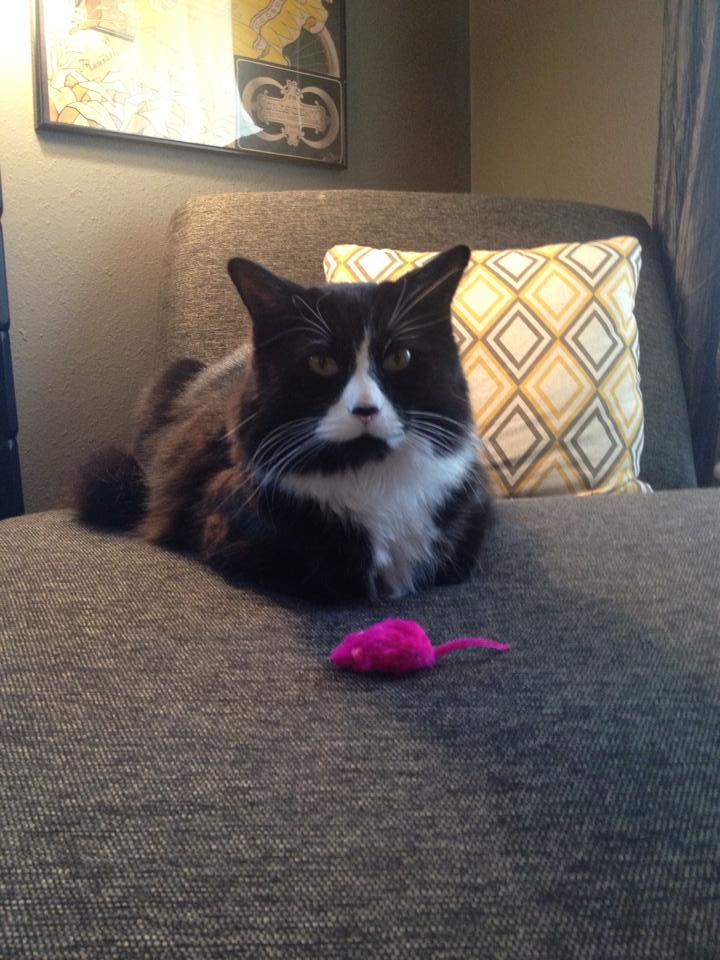
Among the most common concerns we deal with at Gentle Doctor Animal Hospitals are urinary issues of cats. Sometimes healthy cats miss the litter box now and then, sometimes healthy cats miss the litter box MORE than now and then and sometimes a litter box issue is a red flag for a serious health concern.
If your cat is not using the litter box 100% of the time, let’s get him or her in for a medical consultation and examination. Most urinary conditions of cats, though frustrating, are treatable, and some urinary conditions of cats are even curable.
Possible Causes of Abnormal Urination in Cats
- Non-Obstructive Feline Lower Urinary Tract Disease - By far the most common urinary condition of otherwise seemingly healthy cats who urinate inappropriately is feline lower urinary tract disease or idiopathic cystitis. This is a condition that causes urinary bladder inflammation and discomfort, bleeding of the lower urinary tract and an extreme urgency to urinate. This is a medical condition with treatment options. It can become frustrating because signs tend to come and go and respond to some treatments but not others. Recently, stress has been implicated as a large contributor to signs of feline lower urinary tract disease.
- Obstructive Feline Lower Urinary Tract Disease – This is a medical emergency! If your cat is unable to urinate or straining to urinate, he needs to be brought in to Gentle Doctor Animal Hospital or the Animal Emergency Clinic right away.
- Urinary Stones – Like dogs, cats can develop stones in their urinary tract. They can be painful and cause inflammation and infection, and at their worst can cause a urinary tract obstruction, which is a medical emergency.
- Urinary Tract Infection – Urinary tract infections are uncommon in young, otherwise healthy cats, but they do occur. They are more common in older cats and cats with other medical issues such as diabetes.
- Urinary Tract Cancer – Thankfully, cancer of the urinary tract is very uncommon in cats, though it does sometimes occur.
- Diseases that Cause Excessive Urination – Diseases that cause excessive urination can cause urinary issues in cats, as they need to urinate so often and at such a large volume, that they are not always able to reach the litter box in time! Excessive urination and excessive drinking always warrant a trip to the veterinarian! Many diseases can cause these signs, and most of them are treatable. Among the most common diseases that cause excessive urination and excessive drinking in cats are kidney disease, diabetes and hyperthyroidism.
Remember, when your cats urinate outside of their litter box or show other urinary abnormalities, they are NEVER being naughty, they SOMETIMES have an underlying medical issue and the situation should ALWAYS be discussed with your Gentle Doctor Animal Hospitals medical team!
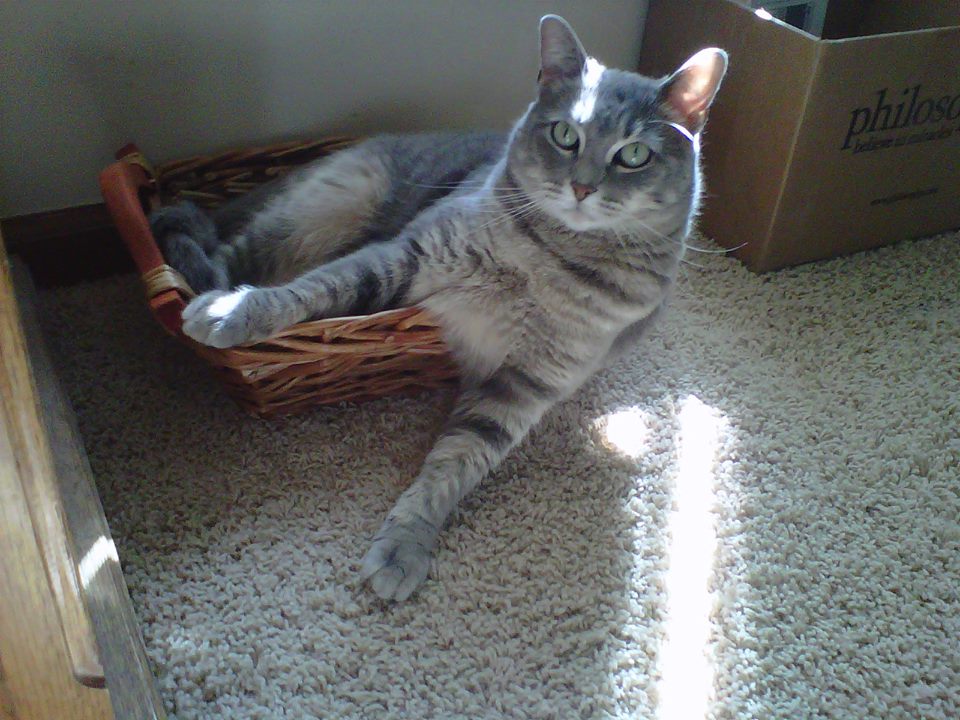
Do you find it difficult to keep track of the vaccines your cats receive? Do you wonder which ones they need and which ones can or should be waived? We see some vaccine prevented diseases so infrequently - thank goodness, that it is easy to forget how awful they truly can be!
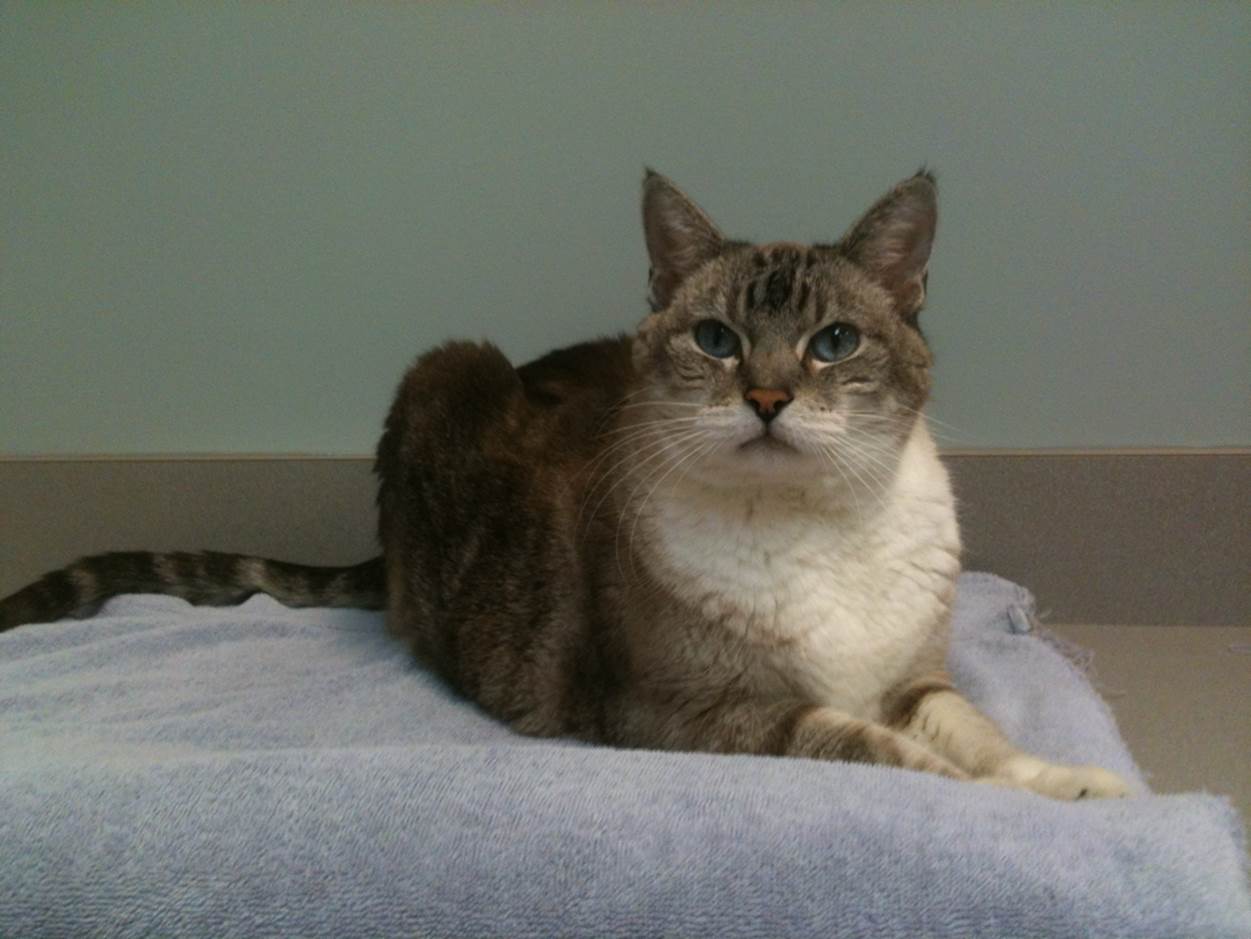
Zsa Zsa, the kitty our vet tech Becky Christ rescued (twice!) is now thriving in her forever home.
Here is the quick explanation of the diseases against which we vaccinate with a more detailed explanation following. Every cat should be vaccinated against rabies, feline viral rhinotracheitis (feline herpes), calicivirus and panleukopenia. Cats at high risk of exposure should be vaccinated against feline leukopenia.
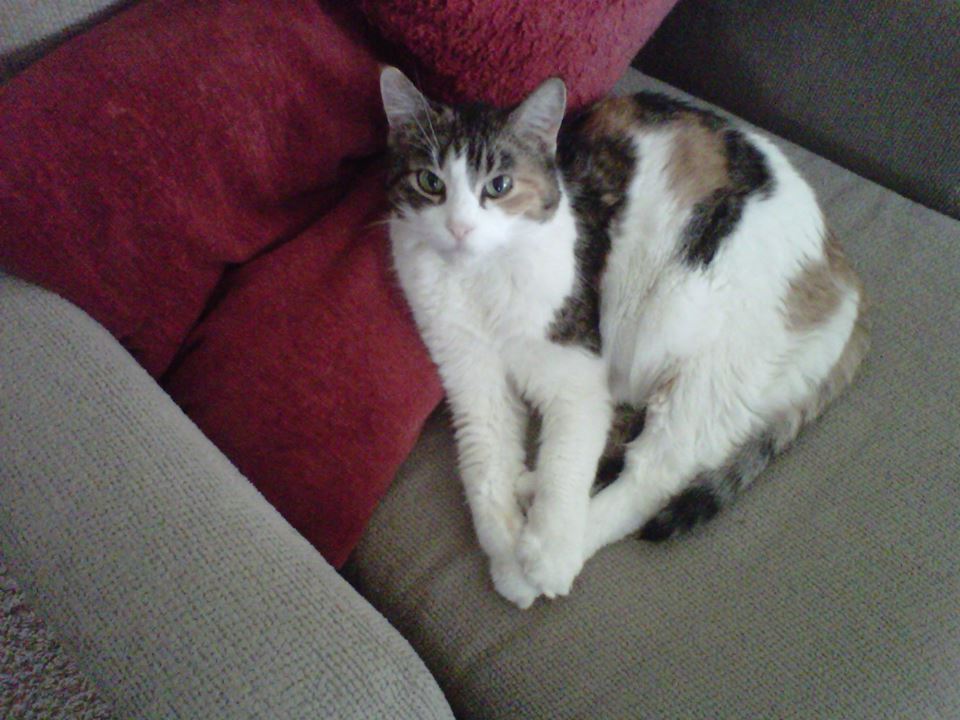
Rabies – Cats are infected with rabies at three times the rate that dogs are infected with rabies! All cats should be vaccinated against rabies.
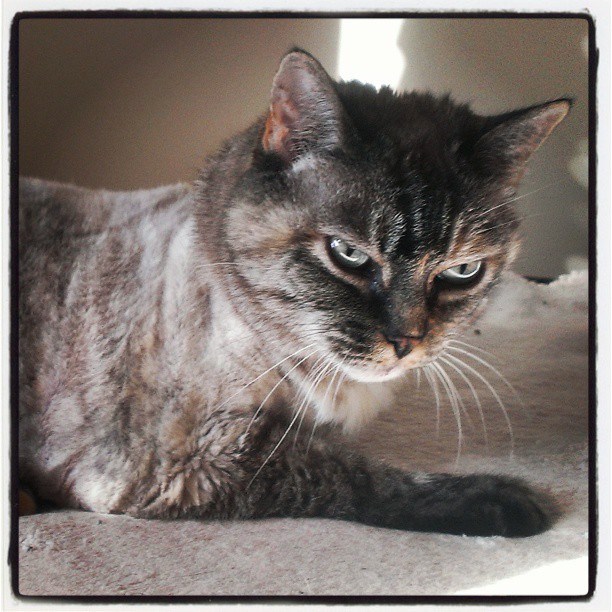
Sassie the 23 year old (!) Cat of Kathi Ortmeier of Basset and Beagle Rescue of the Heartland
Feline Viral Rhinotracheitis – Feline viral rhinotracheitis or feline herpes is a respiratory virus of cats that also often causes conjunctivitis – inflammation of the soft tissue around the eyes. Vaccination decreases the incidence of feline viral rhinotracheitis and lessens the severity of symptoms, but does not always prevent infection.
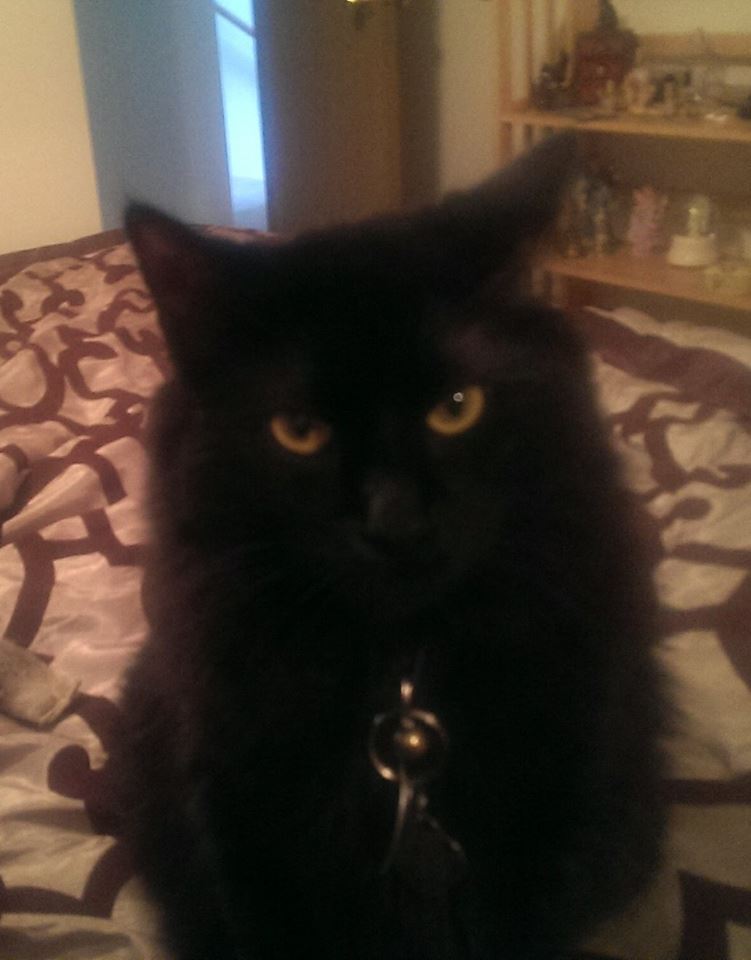
Salem - Isn't he gorgeous?
Calicivirus – Feline calicivirus is a respiratory virus of cats that also often causes oral ulcers. Vaccination decreases the incidence of calicivirus and lessens the severity of symptoms, but does not always prevent infection.
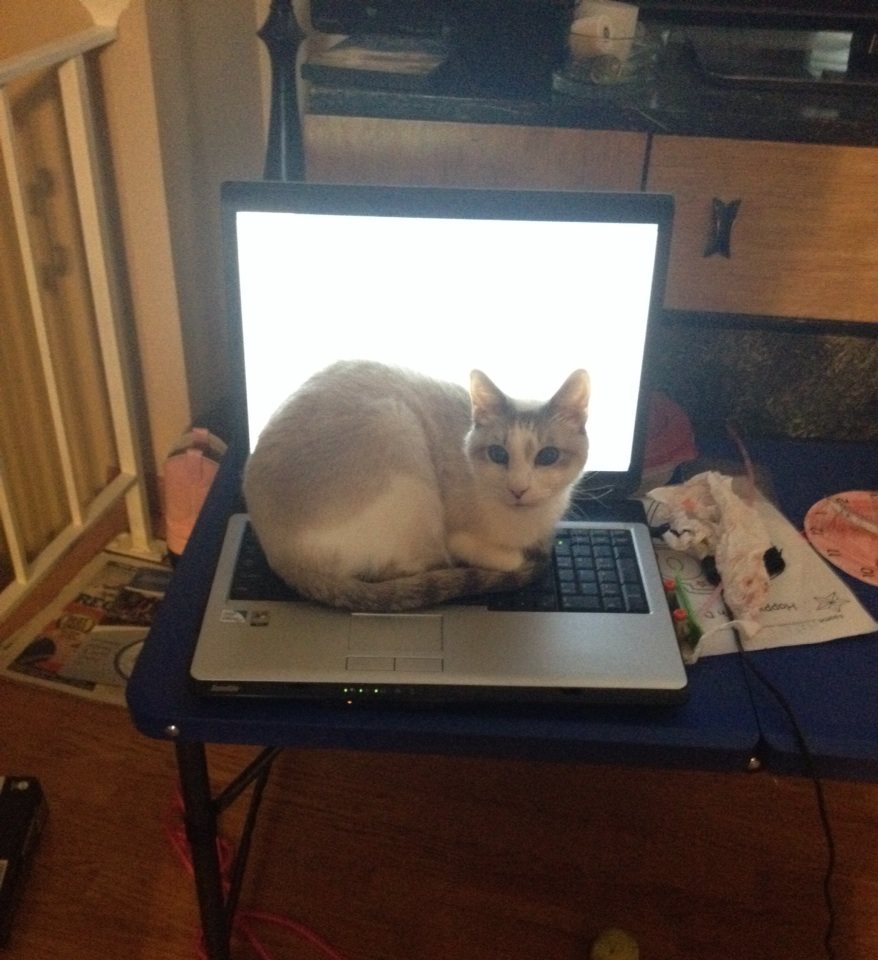
Vet Tech Becky's Hommie Cat
Panleukopenia – Panleukopenia is a viral disease of cats that affects their cerebellum – the part of the brain that helps coordinate motor movement. Panleukopenia can be fatal, especially to kittens infected before they are born. If kittens survive infection, they often go on to have a great quality of life. They have physical limitations, but learn to adapt well, and panleukopenia is not progressive.
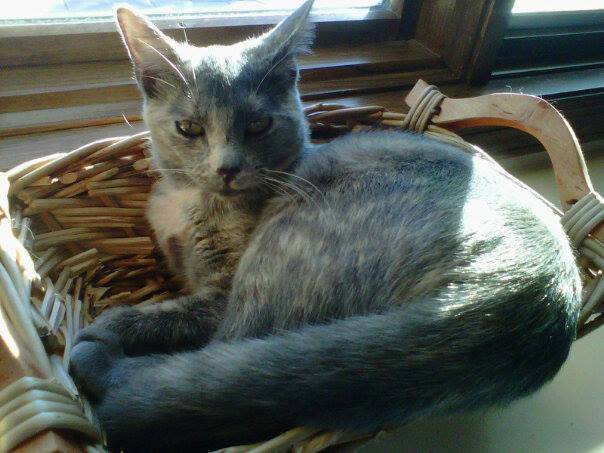
We vaccinate against feline viral rhinotracheitis, calicivirus and panleukopenia in one combination vaccine in order to give your cats as few shots as possible!
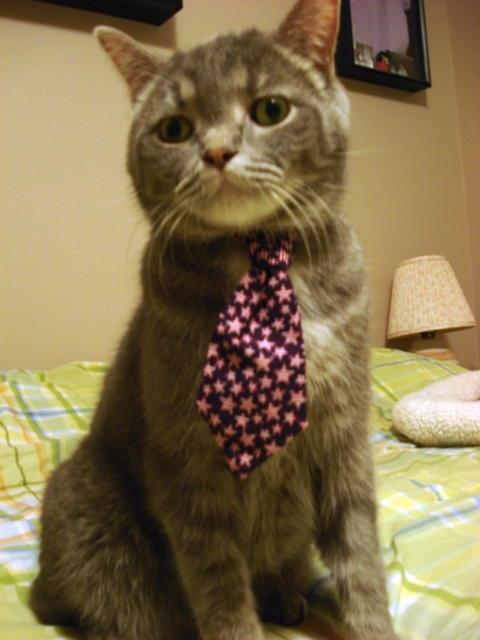
Vet Tech Allison Parker's Frank in his Formal Attire
Feline Leukemia – Feline leukemia is a viral disease of cats that affects their immune systems. A cat with feline leukemia will often die of a secondary infection or cancer that their immune system is unable to protect them against. Because feline leukemia is spread through the transfer of fluids, we mainly vaccinate cats against leukemia who spend time outdoors or are exposed to known or potential feline leukemia positive cats.
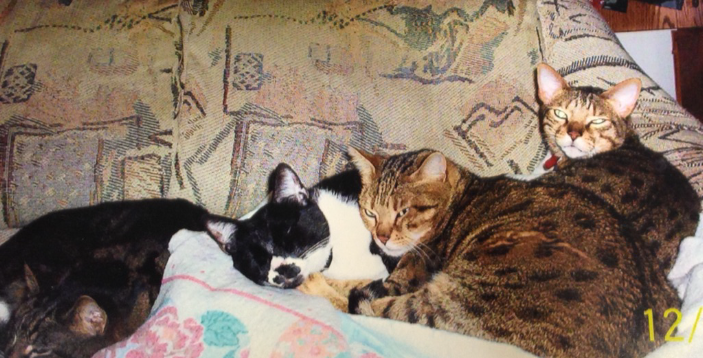
Our Team Member Laura Drew's "Pride" - Left to Right - Figero (who has passed away), Oreo, Nala and Lestat
Please call Gentle Doctor Animal Hospitals today to check if your pets are due for any of their vaccines or other wellness care!
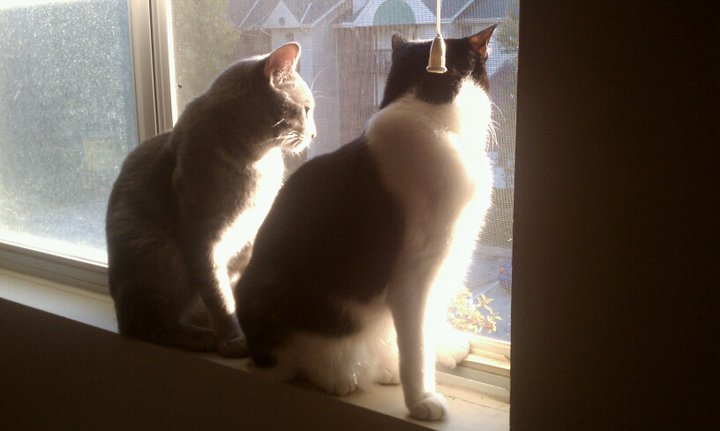
Our Veterinary Assistant Shonda Jenkin's Rescued Kitty and her own Kitty Echo
Cats are prone to developing infectious respiratory disease, especially if they are in close contact with other cats. Infectious respiratory disease in cats can be mild and self limiting or very serious.
Many different conditions can cause respiratory symptoms in cats, among them, infections, feline asthma and heart disease.
The following tips are five ways to keep a respiratory infection from harming your cat.
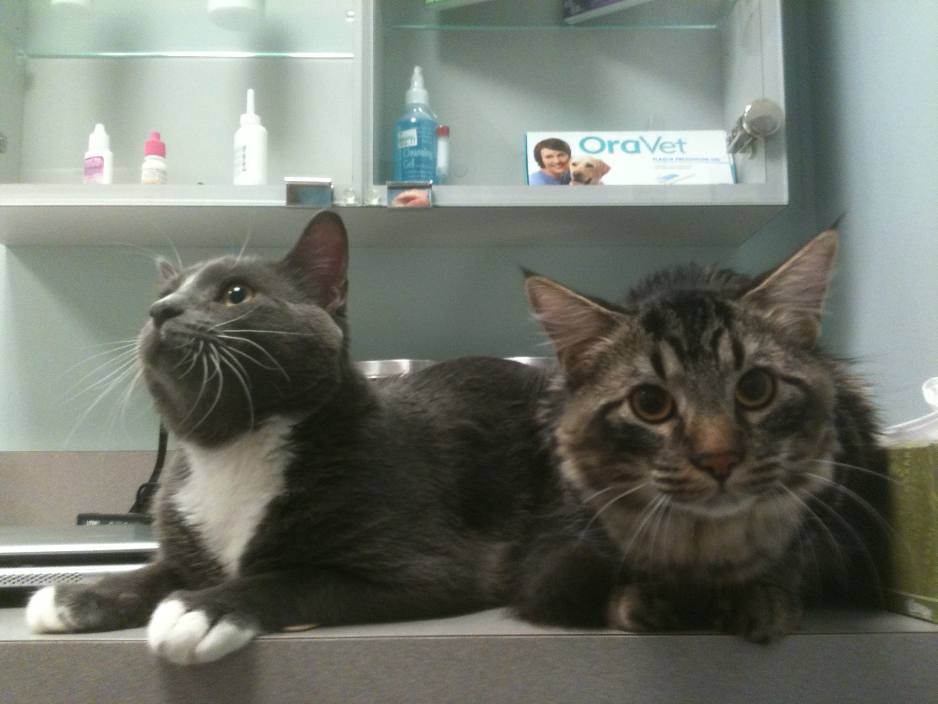
1
Signs of respiratory infections include sneezing, watery eyes, a snotty nose, sometimes difficulty breathing, sometimes lethargy – abnormal tiredness – and sometimes reluctance to eat. If you notice any of these signs, schedule an appointment to have your cat seen as soon as possible. We will determine if your cat has a respiratory infection or a different condition, and treat them to get them back to feeling well as quickly as possible!
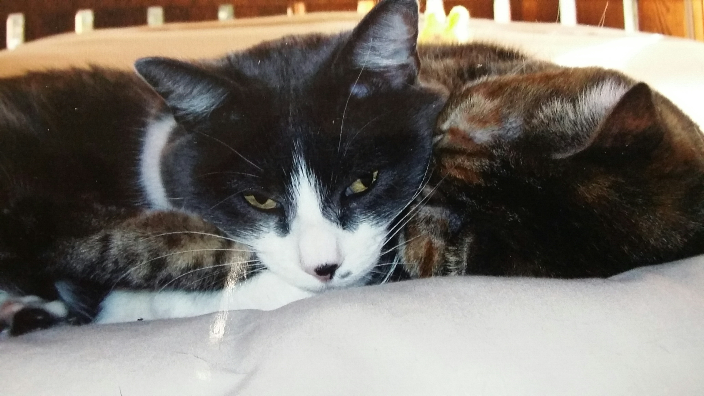
2
Have your cat vaccinated against the two most common infectious causes of respiratory disease – feline viral rhinotracheitis and calicivirus. Do not worry about remembering the long names! Just make sure your cat is up to date on his or her vaccinations! If you are not sure, call us!
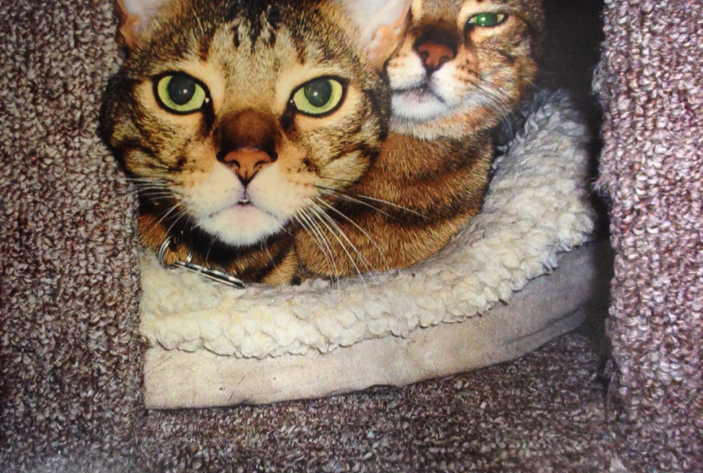
3
Keep your cat separate from cats and kittens you do not know and cats and kittens who may not be vaccinated.
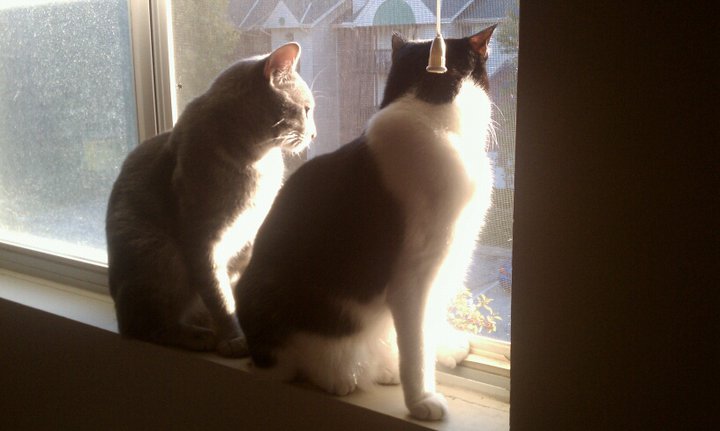
4
Keep your cat indoors. Even indoors, cats are susceptible to respiratory infections, but they are at a lower risk of respiratory infections and other infections and dangers.
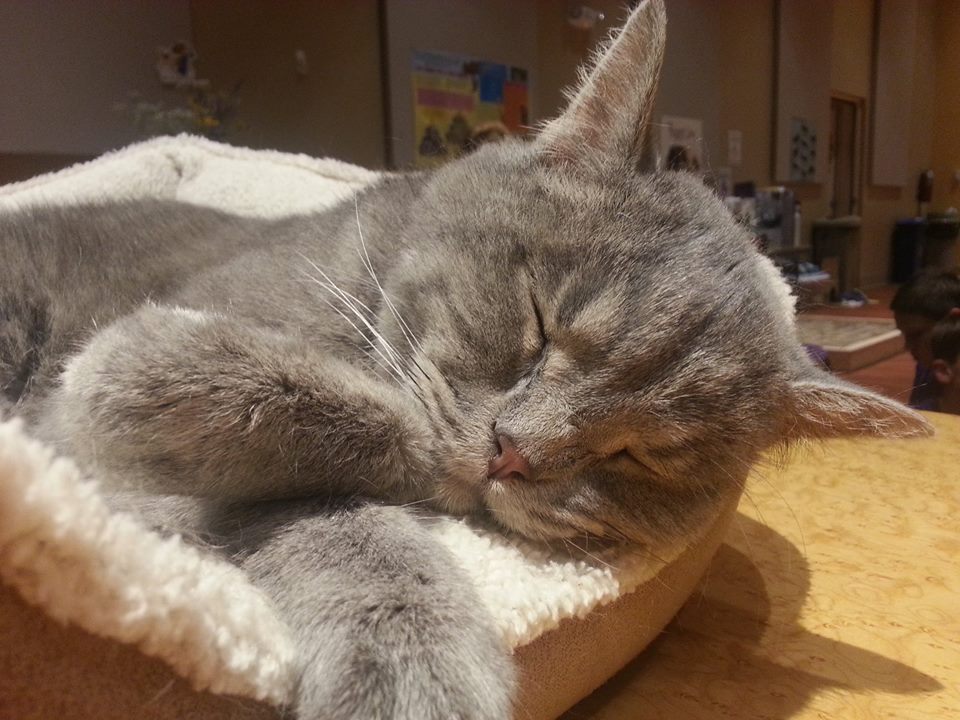
5
Keep your newly adopted kitten or cat separate from your resident cat for one week! Modify the “quarantine” based on our recommendation and the health of your new family member.
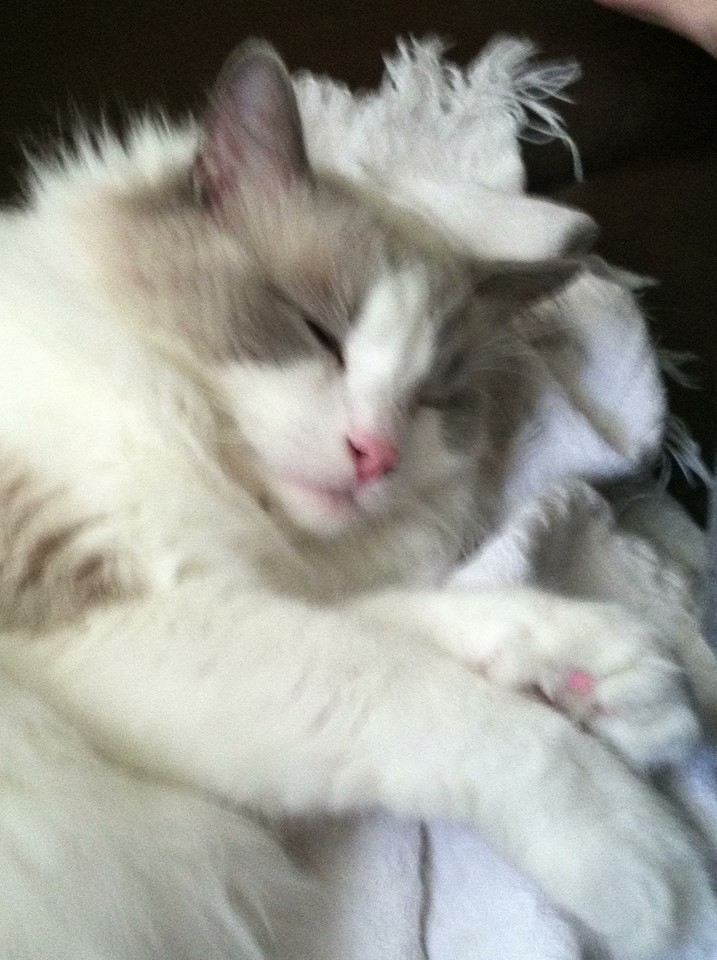
By following these five recommendations, you should be able to prevent or limit infectious respiratory disease in your cats!
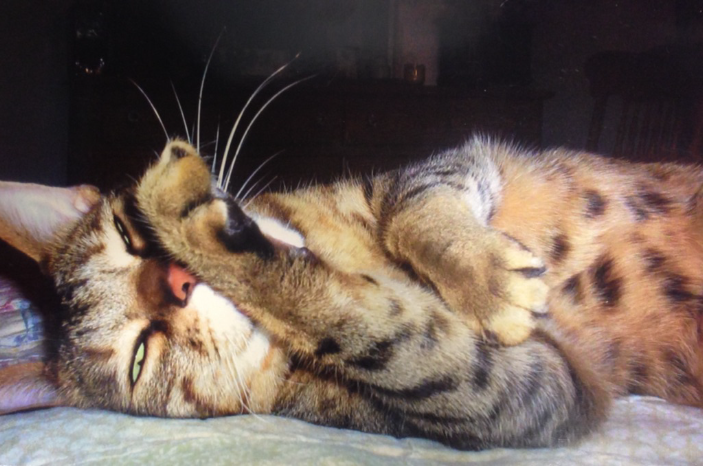
Nala Resting
Every month at Gentle Doctor Animal Hospitals we choose a breed to highlight online. Sometimes we choose the breed of the month based on rescue groups we love, sometimes we choose the breed of the month based on the pets we have in our own families and sometimes we choose the breed of the month because, in our professional opinions, the breed we have chosen to celebrate is just a great breed!
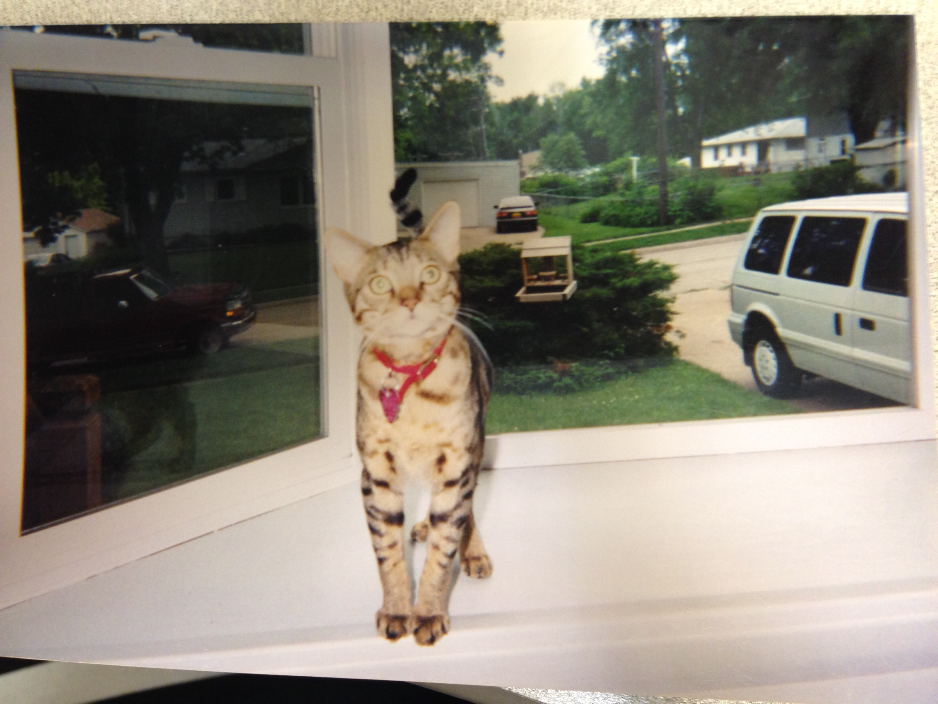
Lestat Standing
This month we chose Bengal Cats to celebrate because they are so gorgeous and have such neat personalities! We also chose Bengal Cats because our own Laura Drews has two wonderful Bengal Cats, Nala and Lestat.

Lestat (left) and Nala (right)
Bengal Cats
The breed we have chosen to celebrate during September 2014 is the Bengal Cat. We will spend the rest of the month celebrating this breed with you!
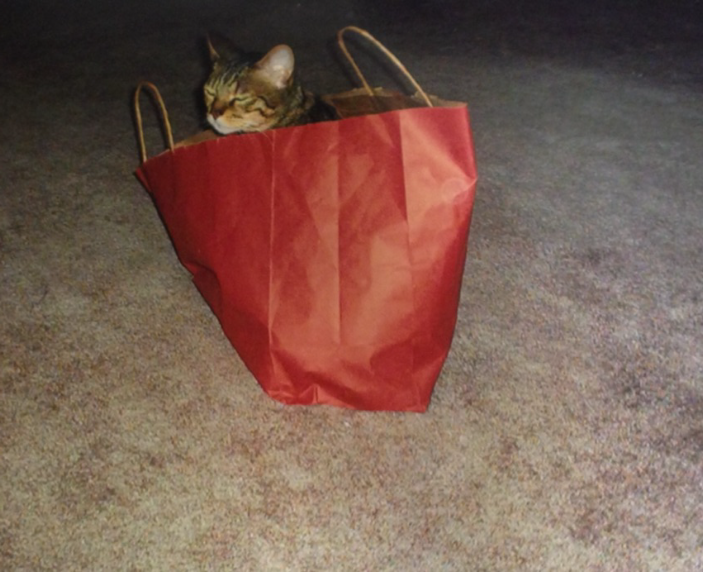
Lestat in a Bag!
Joining the Gentle Doctor Animal Hospitals Breed of the Month Online Conversation:
Make sure to join us on whatever online forum you like best –
or right here on our blog in the comment section of this post. What questions do you have about Bengal Cats? What do YOU love about Bengal Cats? Let us know why YOUR Bengal Cat or Bengal Cat mix is great!
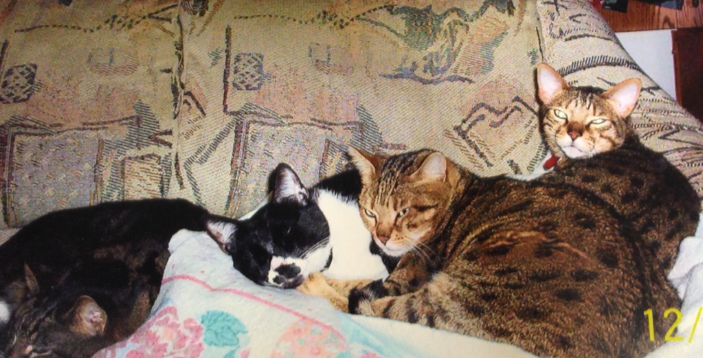
Left to Right - Figero (Who has passed away), Oreo, Nala and Lestat
Send us your pictures, your health questions and your stories. We are looking forward to this month with you!
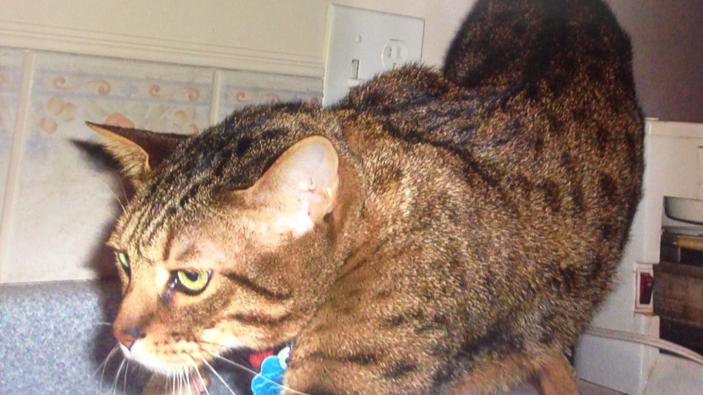
Lestat Strutting
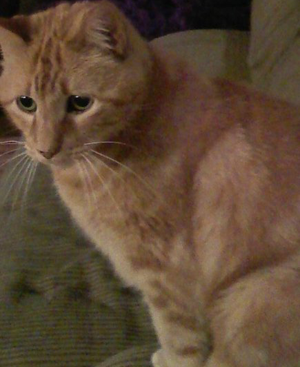 Every month at Gentle Doctor Animal Hospitals we choose a breed to highlight online. Sometimes we choose the breed of the month based on rescue groups we love, sometimes we choose the breed of the month based on the pets we have in our own families and sometimes we choose the breed of the month because, in our professional opinions, the breed we have chosen to celebrate is just a great breed!
Every month at Gentle Doctor Animal Hospitals we choose a breed to highlight online. Sometimes we choose the breed of the month based on rescue groups we love, sometimes we choose the breed of the month based on the pets we have in our own families and sometimes we choose the breed of the month because, in our professional opinions, the breed we have chosen to celebrate is just a great breed!
Domestic Shorthaired Cats
The breed we have chosen to celebrate during February 2014 is the Domestic Shorthaired Cat. We will spend the rest of the month celebrating this breed with you!
Joining the Gentle Doctor Animal Hospitals Breed of the Month Online Conversation:
Make sure to join us on whatever online forum you like best –
Facebook - https://www.facebook.com/GentleDoctorAnimalHospitals
Twitter - https://twitter.com/GentleDoctor120
Pinterest - http://www.pinterest.com/gentledoctor/
or right here on our blog in the comment section of this post. What questions do you have about Domestic Shorthairs? What do YOU love about Domestic Shorthairs? Let us know why YOUR cat is great! Send us your pictures, your health questions and your stories. We are looking forward to this month with you!
